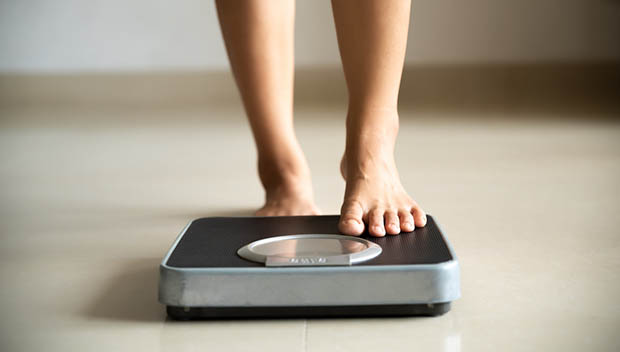
When it comes to athletic performance, weight matters. While losing weight is a goal for many athletes, race weight takes that notion to the next level; this is the weight at which you should ultimately do your very best. For many elite and professional athletes, this is a fine line of maintaining health and performance while being very lean. If you have serious performance ambitions that you believe will be enhanced through obtaining a particular race weight, seek out the assistance of a board-certified sports dietitian to get you to your goals in a structured, individualized way that doesn't compromise your health.
It is crucial to remember that race weights change based on age, level of training, personal health and lifestyle. Instead of narrowly focusing on one number, keep a small range in mind and focus more on feeling fast, strong, energized and happy.
Factors to Consider When Determining Race Weight
- Ideal weight is a standard equation that puts you at an 'ideal' (for health implications) weight for your height. For men, start with 106 pounds and add 6 pounds for every inch above 5ft that you are in height. For women, start at 100 and add 5 additional pounds for each additional inch of height over 5 feet. This should give a basic idea of estimating what your weight should be and if your goal should be losing, gaining or seriously focusing in on a race specific weight.
- Body composition matters, and leaner is generally better. Focusing on composition over total weight is likely to make you a stronger athlete. Men should aim for five to 10 percent body fat while women should aim for 12 to 16 percent. To calculate your race weight, you'll need to know your current body fat from a reliable source and then choose a percentage that is more desirable that you believe is achievable without negatively affecting your health.
- Your sport and goals matter. If your goal is to be healthier and generally fit, there is no need to be chasing an ideal race weight. However, those chasing PRs, podiums and top-level competitions will likely benefit from achieving a race weight. That being said, each sport has different body types, weights and fat percentages of the top performers. For example, professional swimmers have higher body fats than professional runners, and overall weight affects cycling performance more than triathlon performance. Make sure your goal is appropriate for your sport and performance goals.
- Be honest about your habits. If at your current weight you have room to improve your eating (higher quality, better nutrient density, focus on timing), recovery, sleep, stress and training habits, you likely have room to improve your weight and/or body composition. The less dialed in you are with athletic habits, the more room for improvement you likely have.
Estimate Your Race Weight
- Write down your current weight and ideal body fat percentage in decimal form. Example: 150 pounds and 22 percent body fat (0.22)
- Pick your ideal lean body mass percentage. To do this, take your goal body fat percentage and subtract that from 100. Example: 15 percent body fat goal = 15. Therefore, LBM goal = 85 (100 - 15)
- Calculate current fat mass. Body fat mass = current weight multiplied by current body fat percentage expressed in decimal form. 150 x 0.22 = 33 pounds of fat mass
- Calculate lean body mass (LBM). LBM = current weight - current fat mass. Example: 150 - 33 = 117 pounds of lean tissue.
- Calculate your estimated racing weight by dividing your current lean body mass by your goal lean body mass percentage. Example: 117 / 0.85 = 137 pounds
While this calculation should provide an idea of what weight to shoot for, it is only an estimation, and your overall health and performance outputs should be assessed throughout your weight loss to make sure this is the right weight to meet your goals.
READ THIS NEXT: 5 Reasons You're Gaining Weight While Marathon Training


